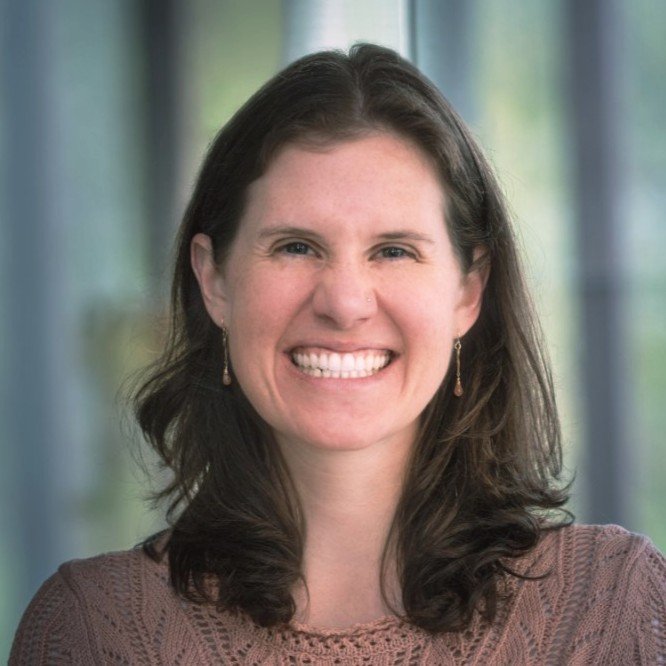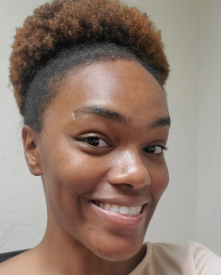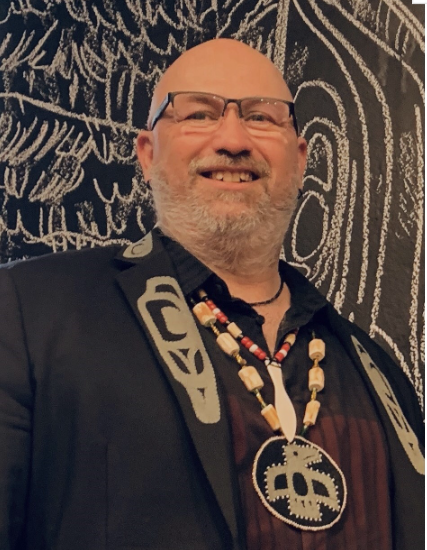Debra Hansen
County Director, WSU Stevens County Extension Professor, Washington State University
Interview by Yousef Sayed & RJ Mao
November 3, 2022
Debra Hansen is a Professor and County Extension Director with Washington State University Service for rural Stevens County, Washington which borders Canada on the eastern side of the state. Expanding broadband access and services is one important aspect of Hansen’s Community and Economic Development focus. Debra has been working in the Digital Equity field for 22 years. A signature aspect of her efforts has been fostering a Broadband Action Team in Stevens County that has been convened local leaders, stakeholders and community members since 2016 to address the “complex , wicked problem of broadband access.” The Broadband Action Team model has now been adopted across the state with funding support that will enable tribal and county Broadband Action Teams to write local Digital Equity plans in 2023.
Hansen spoke to us about the importance of digital literacy for everyone. She believes every county, every community, and every neighborhood is different, so she and her Broadband Action Team need different ways of reaching them. Her work, especially focuses on individuals in rural counties, helping to get them affordable access and to teach them how to use the internet/technology sufficiently. Debra spoke about rural counties and how Broadband access misses people in rural counties because they focus on the county and city. Mapping efforts to identify Broadband needs don’t always have sufficient details to identify the need in rural areas. In addition to the Broadband Action Team she also see libraries as examples of those doing good work around digital equity in her area.
“No matter what color your skin, everyone needs assistance and affordable access to digital literacy, education, and assistance”.
Digital Equity Means Supporting Every Person
The Internet is needed to live in today's society. Debra lives in a rural community, and she is very passionate about helping rural communities because their voices are not heard collectively. The first project Debra worked on was to provide internet for businesses and education, but nowadays everyone relies on the internet for finding information, business, education, registering for benefits, banking, and communicating. So it is vital that people gain digital literacy and have access to the internet.
Informed, Tailored, Inclusive Local Planning Is an Important Strategy for Addressing Digital Equity
Hansen emphasized to us that an important principle to apply to Digital Equity interventions is the need for informed and tailored localized planning. We must look at each county individually rather than averaging needs at the state level. We should find a way to reach all people, let them understand the need, the options and possibilities, and find ways to make it affordable to everyone. The required efforts to create an informed and tailored localized plan might require one-on-one communication between Digital Equity leaders, local leaders, and community members. The need for both localized knowledge about community needs and priorties and the need for intensive knowledge needed about technological infrastructure and Digital Equity interventions that might work at a local level means that Digital Equity interventions that are designed to address the needs of specific communities are not the product of having an eight-hundred number to call.
Hansen also places importance on prioritizing areas that do not yet have broadband access as well as individuals who are not yet connected for any number of reasons. “The unserved areas need to be served first and then the underserved, then we can improve other people's internet. So people who do not have the internet need to be served first.”
A Digital Equity Big Win for WSU Extension: Sustained Collective Action at the Local Level
The Broadband Action Team in Stevens County started in 2016, and now it has 46+ members drawn from local leaders and community members. This enables learning, deliberation, and action on Digital Equity that draws from many areas of expertise in the community. All team members are trying to solve many aspects of the digital equity problems in their area. The best thing about this team is that they communicate and connect to each other's resources thereby improving broadband planning and deployment. They regularly provide their collective views to Digital Equity decision makers by, for example, writing letters to their elected officials, writing comments to federal legislation. and writing letters of support for grants.
Digital Equity is an Unfinished Job in Rural Areas Like Stevens County
In spite of the intensive efforts of the Stevens County Broadband Action Team, there are many places in the count and other rural communities that need the internet, so their job is not done. Among the approaches that help the Stevens County Broadband Action Team sustain long-term action around Digital Equity, Hansen told us they need to continue to:
Be patient and never give up because broadband is a complex and challenging problem in many communities.
Clearly communicate, internally and externally. Learn what is happening at the state and federal levels and how their decision affects our local level.
Be engaged and understanding
It’s also important that to stay focused on rural needs which includes the need for specific kinds of subject matter knowledge that rural communities like Stevens County :
Rural technical assistance because Stevens County, like many rural areas, does not have broadband planners in the county.
Broadband Engineers who understand rural infrastructrure because that expertise is hard to come by but essential for solving the rural connectivity problem.
And of course, funding for planning, build out, and other digital equity interventions. .
WSU Extensions Goal: Support Informed, Ongoing Local Action in All Communities Across the State
With state funding, WSU Extension is now helping to convene Broadband Action Teams that can support Digital Equity planning at the local level across Washington State counties and tribes. “Our goal is to reach each county. Every county, every community, every neighborhood, is different. So we have to have different ways of reaching those individuals. We have to think about what challenges an individual might have like by area and region, as well as supporting those with disabilities and other barriers to Digital Equity.” WSU Extension is just now in the depths of implementing the Broadband Action Teams, such as having regional meetings and know information that we can share with people.
This work was made possible because, Washington State University Extension contracted with the Washington State Broadband Office to support Broadband Action Teams in every county and work with every tribe in the State to help with this. In working with the Broadband Office, WSU Extension was able to make connections between the issues in the communities, who is working on them, and how WSU can get information and assistance to them. This new money from the Washington State Department of Commerce mean that WSU Extension was able to hire people to improve support for local Broadband Action Teams, to connect them to technical expertise and other resources, and fostering learning across local teams.
WSU Extension plans to work with many organizations to expand digital access and skills through this funding including the Washington State Department of Health and Social Services to reach out to their clients. They will also work with the libraries to reach out to their clients. In this way, tailored local planning through Broadband Action Teams will be complemented by and aligned with Digital Equity interventions through agencies such as DHSS.
A example of some good work so far and who’s been doing it? Who would you like to give a shout out to?
According to Hansen, Washington State libraries are a model of good digital equity work that other advocates can learn from. Many libraries across the State help people figure out how to access their computers in their libraries, how to get access to their benefits, and how to use their cell phones to get to something. People who come into the libraries have these technical questions, and the librarians are the ones that are on the ground, trusted, and helping them do this work.To fulfill this role, libraries need all kinds of support and technical assistance and funding to do this work.
There are eight libraries in Steven County. The library director, Amanda Six, is “just a rural rock star.” Six is Hansen’s local hero because she is known for having these conversations about how achieving digital equity looks different in rural communities than other places. And she knows how to reach out to her patrons and clients.






